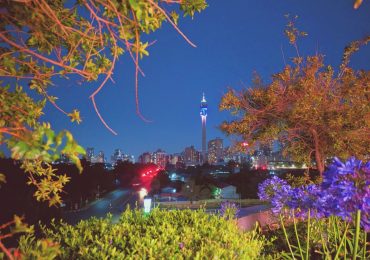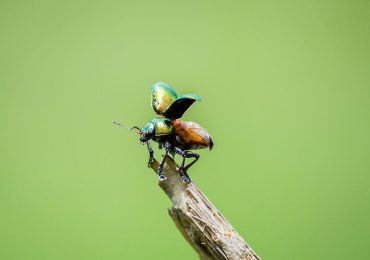Poet and activist Sandile Dikeni died in Cape Town on Saturday, it has been widely reported.
Dikeni was the author of three collections of poems, including the seminal Guava Juice, (Mayibuye Books, 1992), which he followed with Telegraph to the Sky (UKZN Press, 2001) and Planting Water (UKZN Press, 2007). He also published a collection of his articles from the Cape Times, Soul Fire: Writing the Transition (UKZN Press, 2002).
Dikeni was born in Victoria West in 1966. According to Badilisha Poetry, he began writing seriously while in detention for his anti-apartheid activism in the nineteen-eighties. He became sought after for his performances, which mixed gravitas with humour, and rose to prominence in the Cape as a major voice against oppression.
The late author and activist Peter Horn recalled his first encounter with Dikeni’s poetry, in an essay published in At the Margin of One/Many Languages: Essays on South African Literature (Peter Lang, 2014):
This was the voice of the Young Lions of the battles of the 1980s, the voice of the next generation after Oswald Mtshali, Mongane Serote, Pascal Gwala, and Madlenkosi Langa. Guava Juice seemed to me to express like no other poem the spirit of defiance and no surrender.
Dikeni attended the University of the Western Cape, obtained a diploma in journalism through Peninsula Technikon and went on to a career in the same field, where he was arts editor of the Cape Times, editor of Die Suid-Afrikaan and political editor of This Day South Africa. He also served a stint in government, as spokesperson for South Africa’s Housing Minister, Lindiwe Sisulu.
In 2005, Dikeni was involved in a car accident that left him in coma. He endured a slow recovery, but was well enough to participate in events around the launch of Planting Water in 2007. Here he is reading ‘Love Poem for My Country’, from the collection:
Former Cape Times editor Ryland Fisher, in an interview published on News24, recalls the moment Dikeni joined the newspaper:
Fisher said that when he appointed Dikeni, there was controversy in the newsroom.
‘It caused a huge outrage and uproar. We have to remember that during that time, there were 90% white people in the newsroom. He was also not a journalist, but a poet.’
Fisher added that he and Dikeni discussed the backlash.
‘I remember him realising there would be a backlash. We talked about it a lot because I was in the same situation. We spent many moments together talking about these issues and the complexities behind them.’
However, Dikeni soon proved his detractors wrong.
‘He ended up being an amazing addition to the newspaper and helped the lifestyle section grow greatly. He went far beyond anyone’s expectations. We became a lot closer during that time.’
Dikeni died from tuberculosis, his sister Nomonde told IOL:
‘Last month he got TB for the third time, he phoned me asked me to take him to doctor and we took him to Melomed Mitchell’s Plain where he recovered well. They released him and to come home and continue treatment and everything was fine until he got sick again two weeks back.
‘There he seemed to be recovering again until his passing on Saturday evening around 7pm.
‘This is a great loss for our family. Sandile was a brilliant man.’
In the late nineteen-nineties, I was present at a reading Dikeni did for a group of American students. He read ‘Track of the Tracks‘, a poem about his brother who had died of tuberculosis—a disease, he pointed out, that is curable, but whose cure, if you were a black person living under apartheid, involved a path beset with obstacles. After the reading, he collapsed into a friend’s arms, so severe was his pain at the injustice of his brother’s death.
It is the bitterest of ironies that Sandile himself has now succumbed to the same scourge. The JRB sends condolences to his family and friends. RIP, Comrade Guava Juice.






2 thoughts on “Sandile Dikeni, 1966–2019, RIP”